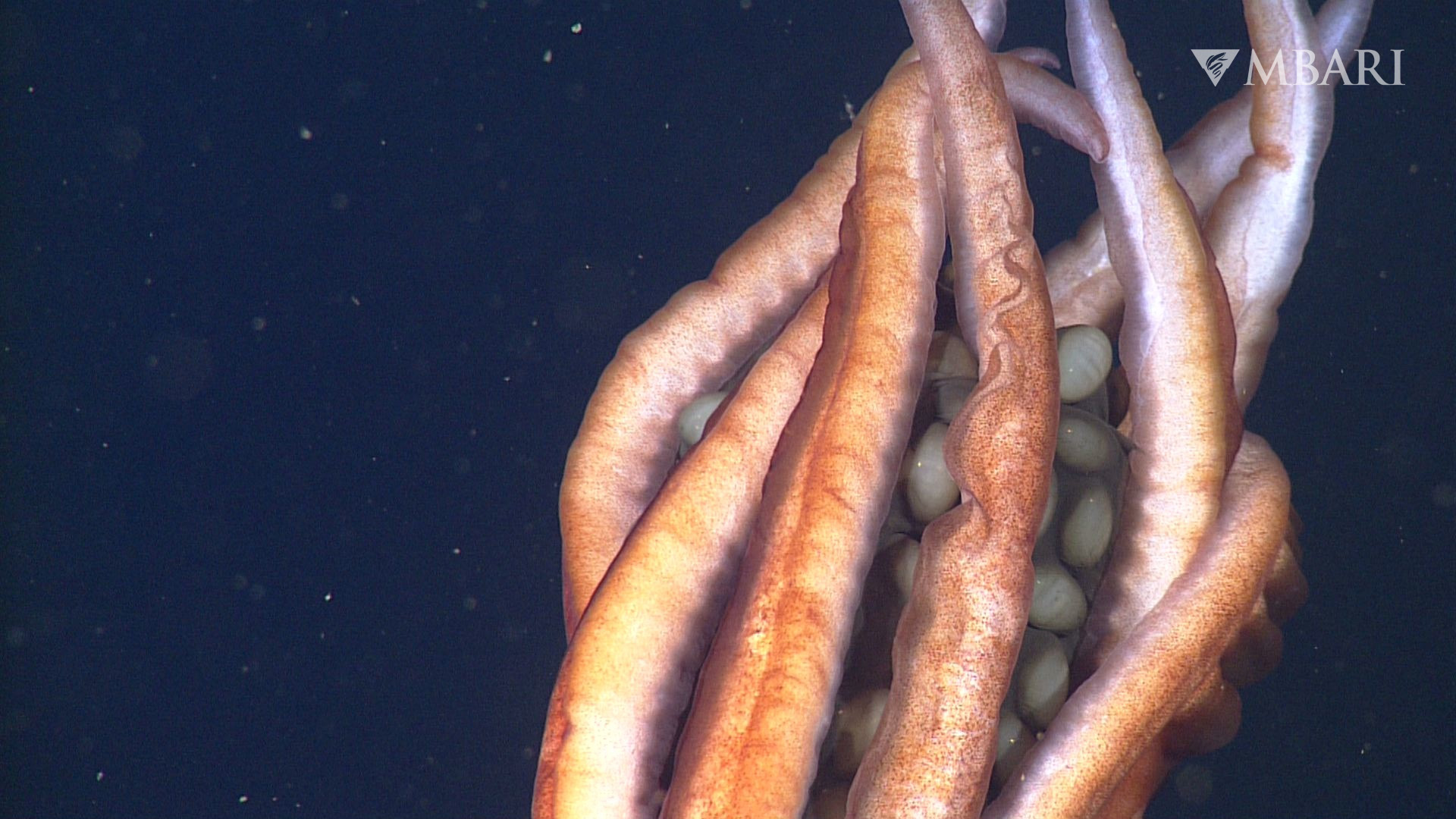Underwater robots have captured a rare glimpse of a female deep-sea squid. Not only was it holding on to a clutch of unexpectedly giant eggs, but it might also be a brand new species.
Though thought to be abundant in the depths of the ocean, deep-sea squid are something of a mystery, not helped by the fact that they’re rarely seen alive. Spotting a female squid brooding is rarer still, but that’s exactly what happened back in 2015 when an underwater robot operated by the Monterey Bay Aquarium Research Institute (MBARI) nabbed some footage of a gonatid squid with eggs.
Remote-operated vehicles from MBARI had observed deep-sea squid egg brooding on 17 previous occasions, but this one was different – the eggs were 11.6 millimeters (0.5 inches) wide, nearly double the egg size of other known gonatid species.
A close-up of the female squid holding on to the eggs.
Image credit: © 2015 MBARI
“Our unexpected encounter with a squid brooding giant eggs caught the attention of everyone in the ship’s control room,” said MBARI Senior Scientist Steven Haddock, who was chief scientist during the expedition that encountered this brooding squid in the Gulf of California, in a statement.
Not only were the squid’s eggs unusually large, but there were also far fewer of them than might be expected. Many egg-producing species in the ocean make lots of small eggs in order to maximize the chances of survival in a pretty unforgiving environment (see: the beginning of Finding Nemo).
But things are different down in the depths. “[T]he stable and predictable environmental conditions of the deep water column (1,000–4,000 m [3,280–13,123 feet]) allow high relative investment in fewer offspring and may select for fewer, larger eggs and advanced hatchlings,” the authors of a study documenting the findings explain.
From examining specimens of other squid previously seen in the Gulf of California, the team of researchers involved also think that the egg-brooding female belongs to an unknown species within the family Gonatidae.
Whether that’s confirmed or not, this mother squid was investing more than many would be willing to give for her babies.
“Brooding takes a lot out of a mother squid. She won’t eat while carrying her eggs and ultimately dies after her eggs hatch,” explained Henk-Jan Hoving, the study’s lead author. Those eggs might even take up to four years to hatch, according to the researchers – that’s a long time to go without a meal.
“But her sacrifice improves the chances that her offspring will survive,” said Hoving. “It’s just one of the many remarkable adaptations that may help cephalopods to survive in the deep sea.”
The study is published in Ecology.
Source Link: Deep-Sea Squid That Broods Giant Eggs Could Be A Brand New Species
